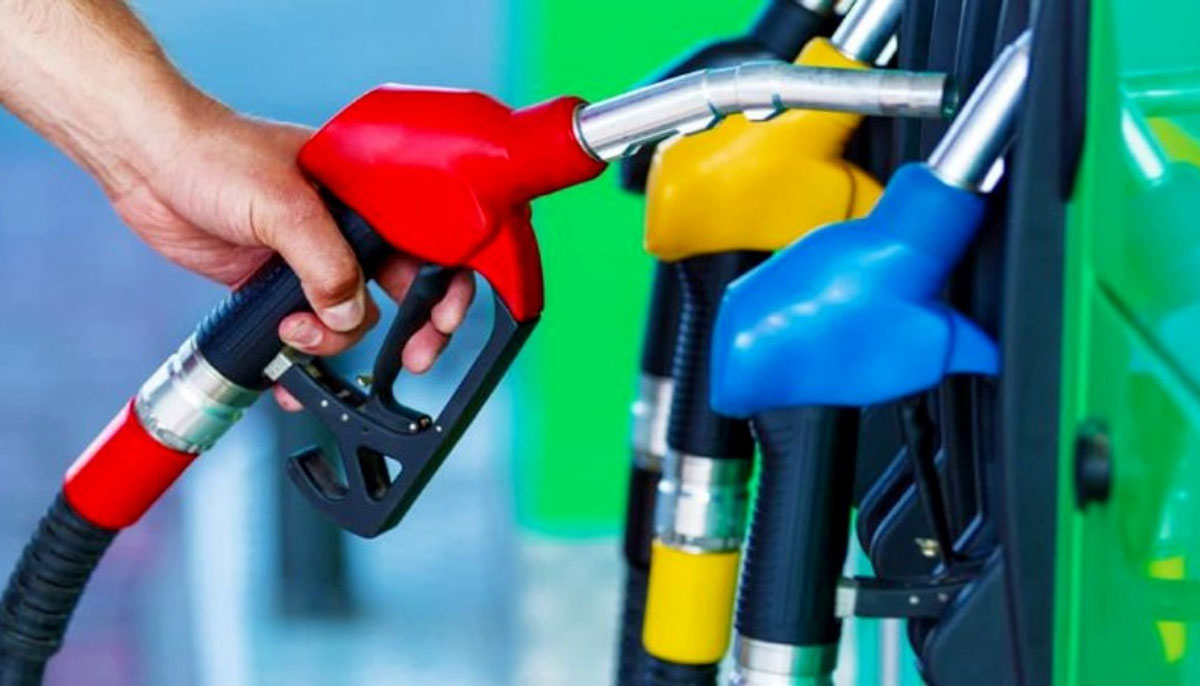OMCs refuse to import Euro-V fuel
ISLAMABAD: The government's move to improve the environment and air quality of the country with the decision to import EURO V standard fuel got scuttled as oil marketing companies (OMCs) have shown their inability to import Euro V fuel on account of stock issues.
OMCs also opposed the import of EURO-V fuel saying this could result in an increase of Rs5-7 per litre for the consumers. In Pakistan EURO-II fuel is being used which has sulphur content of 500ppm and the government wants to switch over to usage of EURO-V fuel in the country having sulphur content of 10ppm to make country environment pollution-free.
And to this effect, the government has already accorded approval to the import of EURO-V standard fuel and to this effect PSO has already been directed to import Mogas (Petrol) with EURO V standards. According to top officials, PSO, which normally imports POL products from Kuwait Petroleum is set to issue tenders for import of petrol as per EURO V specification approved by the government. Right now, Kuwait Petroleum is in process of up-gradation to produce the fuel of EURO-V and it will usher in the process of production of EURO V fuel from November-December this year. Meanwhile, PSO will import EURO-V petrol from other sources.
However, in a letter of Oil Companies Advisory Council (OCAC) on behalf of oil marketing and refineries written to Petroleum Division, built the argument saying that it would not be practically possible for OMCs to manage their distribution and retail network to separate the main grade RON 92 in terms of EURO-II and EURO-V even in major cities. And high price without significant environment benefits would be self-defeating till such time when imported and local supplies are of the same specification.
The letter signed by Asif Ansari, Secretary of OCAC mentioned that Pakistan currently imports around 500,000 MT per month which is about 70-80pc of the total demand. With the proposed end point (FBP) of 205C and Sulphur content of 10ppm, more than 50 percent of this quantity cannot be supplied from current sources and the shortfall will have to be sourced from Europe. It says this could result in a high freight cost of minimum $3-4 per barrel, similarly the product price is estimated to be around $2-3 per barrel higher than current Mogas price. This approximately means a cumulative increase of Rs5-7 per litre to the consumers while it translates into additional cost to the country to the tune of $150-200 per annum or Rs25-33 billion per annum.
The letter also highlights that it was discussed that a phased approach should be adopted by first introducing EURO-IV specification as witnessed in other countries allowing to develop robust and reliable supply chain, preventing price shock to consumers, better analysis of incremental environmental benefits, adjustment of prevailing vehicle population to the new specification and allowing local refineries to upgrade through capital investment.
Currently there are challenges of availability of the products which will require 3-6 months for preparing and putting supply arrangements in place for new import specification of EURO-V. However, in case of PSO, it clarified that at least 60 days prior notice is required to arrange the product as per its procurement cycle.
The letter goes on to say that as the industry understands, this new products specification being introduced for imports would be over and above the current specification of Mogas 92/95/97 RON being produced by local refineries. As such it would have a huge impact on storage and logistics of OMCs at terminal and depot and retail outlets level which needs to be closely considered for uninterrupted supply and smooth operation of distribution networks.
-
 Hong Kong Court Sentences Media Tycoon Jimmy Lai To 20-years: Full List Of Charges Explained
Hong Kong Court Sentences Media Tycoon Jimmy Lai To 20-years: Full List Of Charges Explained -
 Coffee Reduces Cancer Risk, Research Suggests
Coffee Reduces Cancer Risk, Research Suggests -
 Katie Price Defends Marriage To Lee Andrews After Receiving Multiple Warnings
Katie Price Defends Marriage To Lee Andrews After Receiving Multiple Warnings -
 Seahawks Super Bowl Victory Parade 2026: Schedule, Route & Seattle Celebration Plans
Seahawks Super Bowl Victory Parade 2026: Schedule, Route & Seattle Celebration Plans -
 Keto Diet Emerges As Key To Alzheimer's Cure
Keto Diet Emerges As Key To Alzheimer's Cure -
 Chris Brown Reacts To Bad Bunny's Super Bowl LX Halftime Performance
Chris Brown Reacts To Bad Bunny's Super Bowl LX Halftime Performance -
 Trump Passes Verdict On Bad Bunny’s Super Bowl Halftime Show
Trump Passes Verdict On Bad Bunny’s Super Bowl Halftime Show -
 Super Bowl 2026 Live: Seahawks Defeat Patriots 29-13 To Win Super Bowl LX
Super Bowl 2026 Live: Seahawks Defeat Patriots 29-13 To Win Super Bowl LX -
 Kim Kardashian And Lewis Hamilton Make First Public Appearance As A Couple At Super Bowl 2026
Kim Kardashian And Lewis Hamilton Make First Public Appearance As A Couple At Super Bowl 2026 -
 Romeo And Cruz Beckham Subtly Roast Brooklyn With New Family Tattoos
Romeo And Cruz Beckham Subtly Roast Brooklyn With New Family Tattoos -
 Meghan Markle Called Out For Unturthful Comment About Queen Curtsy
Meghan Markle Called Out For Unturthful Comment About Queen Curtsy -
 Bad Bunny Headlines Super Bowl With Hits, Dancers And Celebrity Guests
Bad Bunny Headlines Super Bowl With Hits, Dancers And Celebrity Guests -
 Insiders Weigh In On Kim Kardashian And Lewis Hamilton's Relationship
Insiders Weigh In On Kim Kardashian And Lewis Hamilton's Relationship -
 Prince William, Kate Middleton Private Time At Posh French Location Laid Bare
Prince William, Kate Middleton Private Time At Posh French Location Laid Bare -
 Stefon Diggs Family Explained: How Many Children The Patriots Star Has And With Whom
Stefon Diggs Family Explained: How Many Children The Patriots Star Has And With Whom -
 ‘Narcissist’ Andrew Still Feels ‘invincible’ After Exile
‘Narcissist’ Andrew Still Feels ‘invincible’ After Exile




